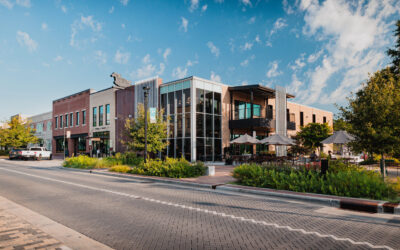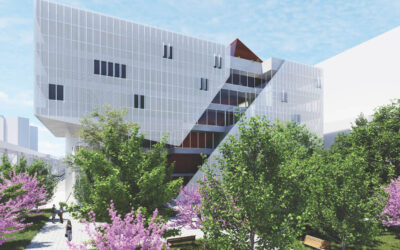Infrastructure investment reflects our economic and cultural priorities. There have been several recent reports that illustrate the condition of Arkansas’ aging roads, bridges, dams, etc. Rather than focus just on the obvious physical conditions, we now need to consider the question of how our infrastructure will affect our economic growth, the design of our cities and landscape, and societal equity.
In order to plan for new infrastructure, we need to decide which priorities are important to the society we want to become. As previous major infrastructure investments have created our country today, the priorities we should include are sustainability and preservation of natural resources, evolving technology, workforce mobility, equity and inclusion, health, and quality of life.
It is already clear that clean and sustainable energy will be crucial to achieving a more equitable, economically prosperous, and resilient future. A renewables-based rebuilding of the economy, and the creation of the jobs to go with it, will need to be an integral piece of infrastructure investment. In this respect, high-paying jobs within the sustainable energy sector are already booming in Arkansas.
The Bureau of Labor Statistics reported that among the occupations projected to have the fastest employment growth from 2016 to 2026 will be those in the green sector. Wall Street and big tech companies have already recognized this importance. Amazon, Google, and Facebook have become the world’s biggest corporate purchasers of clean energy and are now planning for some of the world’s most transformational climate goals.
The pandemic, and our nation’s shift to remote working, quickly illustrated how evolving technology has emancipated employees from working in the physical space where the jobs are located. This freedom now allows greater mobility for employees to choose where to live as long as the technological infrastructure is there to support it. As our workforce becomes more accustomed to this new normal, our population will shift from those areas with high cost of living and social inequity to areas of the country with the greatest opportunities and quality of life. Some communities in Northwest Arkansas have already made this realization and are marketing to the highly skilled mobile workforce by designing cities with a greater quality of life, and providing an active lifestyle through trails, museums, new schools and sometimes even giving away money and bicycles.
There are certainly concerns about expanding budget deficits, but consider that the fiscal return from infrastructure investment is significant because it expands productive capabilities of both our state and the country. We can look at those countries with the greatest spending on infrastructure to see how it affects their economy, most notably, China.
Both the United States and the State of Arkansas need to demonstrate our leadership to the citizens and the world. That means more than just replacing or improving what we already have. Our country and state desperately need infrastructure that can secure a green future for a technologically advanced workforce that has the flexibility to choose where to live based on quality of life no matter where the business is located. This investment is inevitable for a prosperous future, and the longer the delay, the more all of these costs, financial and cultural, will rise.
This article was originally published in AMP News Online.
Photo courtesy of Arkansas State Parks and Tourism.



